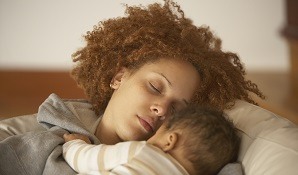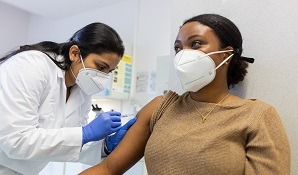COVID-19 has changed our lives in many ways, from lockdown restrictions to working from home. One area that continues to be affected is burials and funerals.
To minimise the risk of infection after death and at funerals, various COVID-19 regulations and protocols have been put in place. These regulations are updated from time to time as we learn more about the virus and move through various levels of lockdown. Therefore, if you need advice or help with the regulations, ask your undertaker or religious leader. They will be able to advise you on the most recent regulations and guide you on how to follow them.
An overview of COVID-19 funeral protocols
Death at home
Regulations will cover who must be called to confirm death, how the body must be handled after death and what precautions those in the home at the time of death must take to avoid infection. Current regulations at the time of writing stipulate that:
- An EMS (emergency medical service) must be called to confirm death, following which the undertaker may remove the body
- Remains must be transported in a sealed body bag
- Linen, clothes and masks of those who were in the home at the time of death must be washed, and surfaces disinfected
Viewing and handling the body
Regulations will cover who can handle and view the body, how long it can be kept in the mortuary and what precautions those in contact with the body must take. Current regulations at the time of writing stipulate that:
- The body may only be kept in a mortuary or designated health facility such as an undertaker’s premises for a limited time
- Anyone handling the body must wear personal protective clothing
- The body may be washed and dressed, but only at a mortuary or undertaker’s premises
- Embalming is allowed if safety measures are followed
- Relatives may view the body, but they cannot touch or kiss the body
- Night vigils are not allowed
Related posts
Burials
Regulations aim to limit the spread of the disease while ensuring the deceased has a dignified and respectable funeral. Regulations will cover protective measures to be taken at the funeral and specify limits on the number of people who may attend the funeral as well as the length of the funeral service. Current regulations at the time of writing stipulate that:
- Cremation is preferred, but burials are allowed
- Coffins can be, but do not have to be, wrapped in plastic
- The body may be wrapped in a body bag, shroud or blanket
- Burials and funeral services must be kept short - no longer than 2 hours
- No more than 50 people may attend a funeral in lockdown level 3 and no more than 100 in level 1
- Anyone attending the funeral must wear a mask and follow social distancing rules
- Anyone placing the body into a grave should wear gloves and wash or dispose of them afterwards
- After funeral gatherings or “after tears” gatherings are not allowed
Don’t let funerals become super-spreader events
Saying our final goodbyes to our loved ones is an emotional time. Traditionally we have relied on physical comfort like hugging or holding hands to help us in our grief. We have expressed our emotions through singing and passionate eulogies. Unfortunately, being close to or in contact with others increases the risk of being infected with the virus, so these activities may no longer be safe.
It is really important to maintain a physical distance, wear masks, and follow the basic hygiene rules like washing your hands and not touching your face, to reduce the chance of infection at funerals. If there are loud speeches or singing (if singing is permitted under regulations), increase physical distance to 3 metres as this reduces the risk of transmission.
Safe and sound
These are difficult days. Losing a loved one at this time is especially hard. If we follow the required protocols and regulations, it is possible to stay safe from COVID-19 infection while we mourn the dead and support each other in our grief.
Original article published on: 3rd July 2020
Updated on: 19th February 2021
Updated on 15th March 2021



